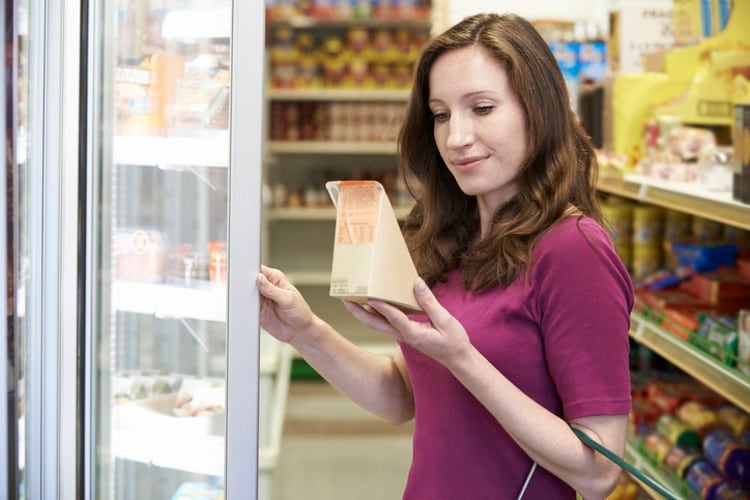The UK Food Information Amendment – also known as Natasha's Law – came into effect on 1 October 2021, requiring food businesses in England, Wales and Northern Ireland to provide a full ingredients list and allergen labelling on goods prepackaged for direct sale (PPDS) on the premises.
The 14 allergens are celery, cereals containing gluten (such as barley and oats), crustaceans (prawns, crabs and lobsters), eggs, fish, lupin, milk, molluscs (mussels and oysters), mustard, peanuts, sesame, soybeans, sulphur dioxide and sulphites (if they are at a concentration of more than ten parts per million) and tree nuts (almonds, hazelnuts, walnuts, brazil nuts, cashews, pecans, pistachios and macadamia nuts).
The law has been introduced to protect the more than two million consumers in the UK who have a diagnosed food allergy. In fact, according to the Natasha Allergy Research Foundation (NARF), the UK is experiencing a ‘second wave’ of allergic disease, with the number of Brits living with allergies rising by 5% every year.
NARF was set up by the parents of Natasha Ednan-Laperouse, the teenager who died in 2016 from anaphylactic shock from an undeclared ingredient on a Pret a Manger baguette.
The European Academy of Allergy and Clinical Immunology (EAACI) reports that allergy is the most common chronic disease in Europe. Up to 20% of patients with allergies live with a debilitating form of the condition, with the constant fear of anything from an asthma attack to dying from an allergic reaction.
Want my cake and eat it
Despite the risks, a UK-wide survey conducted by Délifrance found that three quarters of consumers with food allergies still enjoy bread, 74% indulge in sweet treats like brownies or cakes, and 70% eat pastries like croissants and pain au chocolate. Another 66% like savoury treats such as cheese twists.
However, the majority don’t feel their needs are being met by food operators.
For more than 30 years, Délifrance has been supplying bread, viennoiserie, pâtisserie and savoury products to foodservice providers, retailers and bakers around the world, along with recommendations and best practices.
To help make the transition to comply with Natasha’s Law as seamless as possible, the company embarked on a UK-wide survey to gather a clear picture of the most typical food allergies, the preferred bakery products of food hypersensitive (FHS) consumers, their buying habits, and ways in which they could be encouraged to buy more.
Speaking to both FHS consumers, those with children with allergies and monitoring thousands of online conversations using social listening tool Delve Insights, it found the top five outlets for baked goods were supermarkets, bakeries, coffee shops and cafes and restaurants. It also delved into the consumer experience of independent retailers, pubs, bars and hotels and highlighted the key areas for each of these outlets to address.
For example, almost three in 10 FHS consumers want a greater choice, improved labelling and signage, segregated areas for products containing allergens, and waiting staff that is more knowledgeable about ingredients and allergies. Délifrance said it is also worth considering offering more wrapped products and dialling up communication on allergy reassurance for customers.
Big opportunity for bakers
“It’s clear these consumers love their baked goods, representing a big opportunity for food operators,” said Stéphanie Brillouet, marketing director at Délifrance.
“They just need to be reassured that their products are produced and kept separate from those containing allergens. Unsurprisingly, they don’t want to compromise on taste and choice either.
“At Délifrance, we’ve been eliminating or reducing allergens across our range for years. We’re also continually developing delicious new baked products that meet the needs of different diets – whether they’re allergen-free, vegan or organic. It’s a huge job, but we believe essential to keep the growing numbers of FHS consumers safe and happy.
“We realise this represents a big challenge for some food operators, but we’re convinced that it’s good business as well as being vital for public health and wellbeing. We’ve shared some of our processes and approaches in the report, in the hope that they’ll inspire food operators to adapt, giving them the chance to attract rather than alienate what can often be a highly loyal group of consumers.”
Jacqui McPeake, consultant for Food Allergy Aware, which partnered Délifrance for the report , added, “There’s a huge community of people with allergies on social media – on Instagram, Twitter etc – and they all talk to each other. If an FHS consumer trusts a food operator and enjoys the food, they'll become a regular customer, tell their friends and share their experiences on social media using hashtags like #allergyapplause.
“It’s worth remembering that FHS consumers are vocal on social media if they have a bad experience too. And with allergies on the rise, this could affect businesses negatively in the long-run.”
The free-to-download report is available here.




